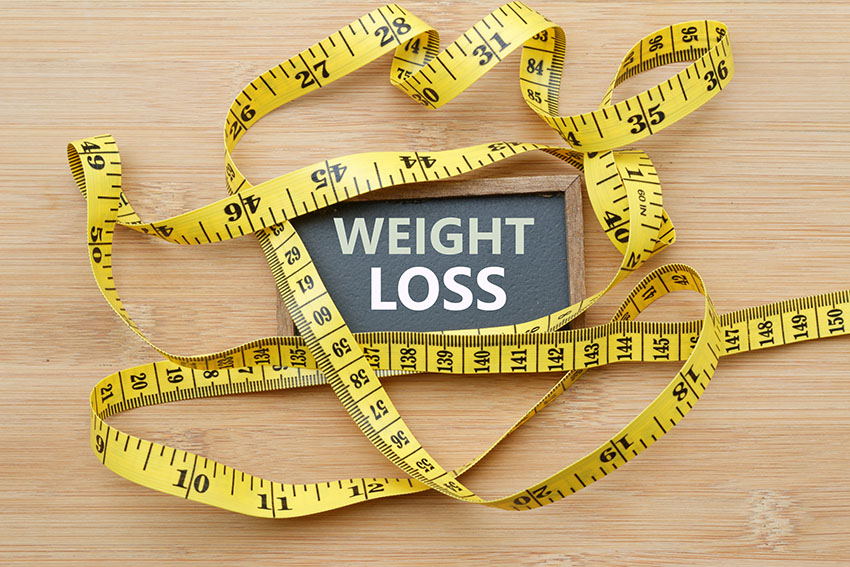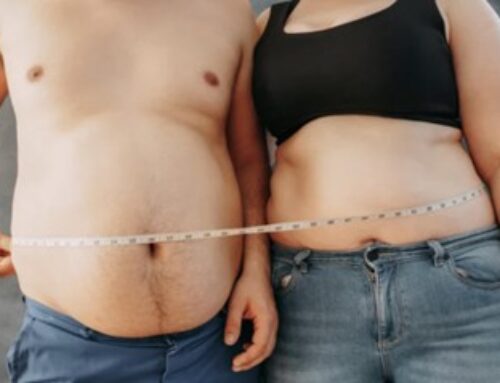For many years now we have been teaching nutrition in formal class settings, one on one consulting, and during our daily table side conversations with patients as they are getting adjusted. One point that I try to stress with anyone trying to lose weight, is that your little choices determine your overall success. Losing weight is more about behavior changes than it is about the knowledge of what food to eat and when to eat it. Try stressing less about what is the proper ratio of carbohydrate to protein macros and more about the lifestyle habits that ensure permanent weight loss. Below are the top 6 habits that we have found to help you lose weight and keep it off for good.
1. Keep your food simple.
Studies have shown that eating simpler food leads to eating less, which in turn helps you shed pounds without effort. So how do you keep a meal simple? Stick to the basics of a healthy meal: a protein like meat or fish, plenty of non-starchy vegetables, whole foods carbohydrates from root vegetables or fruit, and some healthy fat. Although I love a delicious gourmet meal as much as the next person, it’s easy to go overboard with many delicious recipes. If you’re trying to lose weight, you’re better off cooking simple dishes that don’t have a bunch of extra ingredients and additional flavoring, and saving those recipes for special occasions or a nice weekend dinner.
Simple Date Night For Two – Simple Salmon
Two 6oz salmon fillets
¼ cup liquid aminos (natural soy sauce)
¼ cup local honey
¼ olive oil
Heavy sprinkle of garlic powder and lemon pepper
Place all ingredients in zip lock bag for one hour in the fridge.
Grill each side of the salmon for 7 minutes on each side.
Sides
Add a salad, green beans, or Brussels sprouts as a vegetable
Skewer some fresh pineapple slices and grill with the salmon.
2. Be sure to eat enough.
Many people beginning a weight loss challenge believe that less food is always better when it comes to losing weight. This belief causes you to deprive your body of the calories and nutrients it needs to function optimally and causes additional stress. Plus, decreasing your caloric intake too much lowers your resting metabolic rate (how many calories you burn just staying alive), which can cause weight loss to stall or even reverse. No matter what program you choose, dieting should never be about starving yourself. Calories do count, but when it comes to weight loss, undereating is just as harmful to your weight loss goals. The secrets to permanent weight loss are really not that secretive but, they are often countercultural to the typical American lifestyle. Our lifestyle can create behavior patterns that cause us to choose foods mostly based upon convenience, speed, and price. These behavior patterns will result in the typical American diseases of diabetes, obesity, and heart disease. It is our mission to see this change in America. We want to see our culture change by helping you become healthier than you have ever been.
 Eating simple whole foods provide a more satiating per calorie meal than the typical highly processed American diet. This helps you eat less without fighting hunger or counting calories. Voluntarily restricting calories isn’t an effective weight loss strategy, but naturally consuming less food without trying is truly the holy grail of weight loss. This means you can eat meals that are satisfying without counting calories, and naturally eat less than you would on a typical American diet.
Eating simple whole foods provide a more satiating per calorie meal than the typical highly processed American diet. This helps you eat less without fighting hunger or counting calories. Voluntarily restricting calories isn’t an effective weight loss strategy, but naturally consuming less food without trying is truly the holy grail of weight loss. This means you can eat meals that are satisfying without counting calories, and naturally eat less than you would on a typical American diet.
3. Eat enough carbs to support your activity level.
Carbohydrate tolerance is highly individual, and I’ve seen patients who do quite well on a very low carb diet, while others crash and burn. Usually, the biggest factor is the amount and intensity of exercise the person is doing, as many of my patients trying to lose weight are participating in high intensity training programs, such as Crossfit, or training for the next big race.
While I don’t think it’s necessary to restrict carbohydrates, I do think it’s important to match your carbohydrate intake to the amount of exercise you do. Not only can a mismatch stall your weight loss, but it can lead to instances of fatigue and muscle breakdown if you’re over exercising and not eating enough carbohydrate to match your activity level. I’ve had many patients who, in an effort to lose weight, ramp up their exercise and cut back on carbohydrate intake. Many even remove carbohydrates entirely, avoiding even small amounts of healthy choices like sweet potatoes and fruit. Unfortunately, this can often do more harm than good.
If you’re relatively sedentary, or are only able to do a small amount of exercise every day (due to pain, health conditions, immobility, etc.), you may find that eating a lower carbohydrate diet (7-15% of calories) may help you shed weight faster. If you’re highly active, have a physically demanding job, or have tried a low carb approach in the past without success, you might find a more moderate carbohydrate approach can be helpful (15-30% of calories) in stimulating fat loss.
4. Move more throughout the day.
Sitting too much can reduce the benefits of an exercise program and stall weight loss. Unfortunately, if you work in an office, commute by car and watch a few hours of TV each night, it’s not hard to see how you could spend the vast majority of your waking life (up to 15 hours!) sitting. And unfortunately, exercise alone isn’t enough to reverse the harmful effects of too much sitting. When it comes to weight loss, getting active throughout the entire day, and not just the 60 minutes you spend at the gym, is a crucial component of a well-rounded regimen.
There are many different ways to increase your movement throughout the day, and I outline several of them in my article about the dangers of sitting excessively. Getting into the habit of moving throughout the day can not only benefit your weight and promote fat loss, but it can also improve your overall health and reduce your risk for chronic disease.
 5. Don’t do it alone.
5. Don’t do it alone.
One of the hardest parts about losing weight is trying to do it all on your own. Making major lifestyle changes without any social support is not only difficult, but often unsustainable. Having friends or family around you to encourage you, or even make changes along with you, can greatly increase your success in any major lifestyle change. You can share recipes, plan partner workouts, and encourage each other on your journey to better health.
6. Address your whole life, not just diet and exercise.
Did you know that there’s a lot more to losing weight and keeping it off than just diet and exercise? For example, sleep deprivation makes us hungrier, and high levels of stress hormones cause us to eat more and store more fat, in turn reducing our ability to lose weight and keep it off. Studies also show that those with social support, a better ability to handle stress, self-efficacy, and those who assume responsibility in life are more likely to keep weight off once they lose it.
Focus on managing your daily stress with walking, prayer, or even a cup of tea on the front porch. Plan ahead using shopping lists and meal plans to help you reduce the stress that comes along with starting a big lifestyle change. Connect with friends and family, and get support in your weight loss efforts. You’ll be more likely to lose weight and keep it off for the long haul. And you’ll actually be able to enjoy your life while doing it!

Daryl C. Rich, D.C., C.S.C.S.





